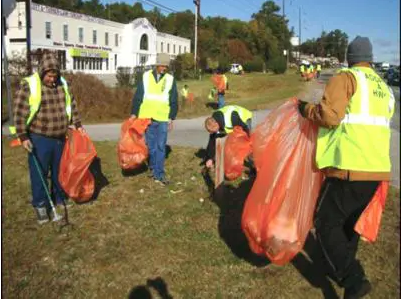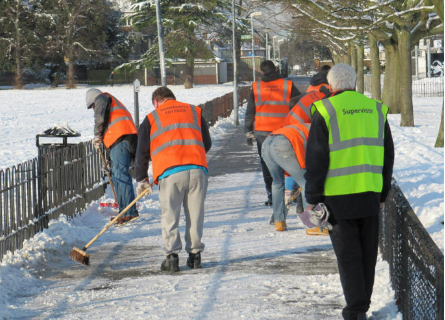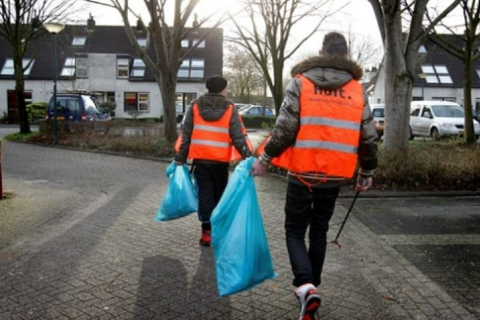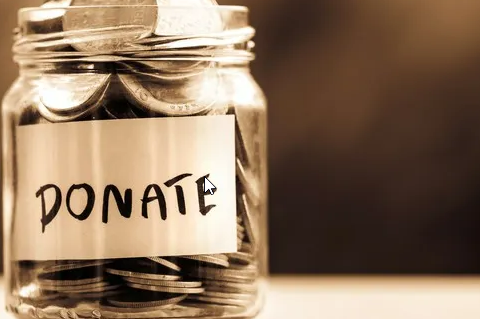The Community Services Block Grant (CSBG) is definitely real and absolutely legitimate, since the CSBG program uses the fund awarded by the Department of Health and Human Services to eligible Community Action Agencies (CAA) and also the county government which provides services to low-income individuals and families.
Even though CSBG is real, you should be careful as CSBG does not provide direct grants to individuals and also does not charge a fee for receiving a grant. Well, to understand how The Community Services Block Grant (CSBG) works, you can dive into our post below!
What is the Aim of CSBG’s Program?
The main purposes of CSBG are to reduce poverty, empower low-income families and individuals and revitalize low-income communities to become fully self-sufficient. The CSBG’s program is designed to help low-income individuals and families to:
- Secure and retain meaningful employment
- Attain an adequate education
- Improve the use of available income
- Get adequate housing
- Gain emergency assistance, including health and nutrition services
- Eliminate obstacles that can block the achievement of self-sufficiency
- Achieve the greater participation in the affairs of the community
Reportedly, the U.S. Department of Health and Human Services actually provides Community Service Block Grant (CSBG) funds to:
- 50 states
- Guam
- American Samoa
- The Commonwealth of Puerto Rico
- The Virgin Islands
- The District of Columbia
- Federally-recognized Tribes, Tribal Organization and State-recognized Tribes.
- Other organizations that are specifically designated by the states
In short, Community Service Block Grant (CSBG) is such a grant from the federal government designed to provide comprehensive services in helping low-income individuals to reach self-sufficiency and others.
How to Apply for Community Service Block Grant?
If you want to apply for CSBG, you just simply visit the CSBG Map State and Territory Grantee Contact Information that you can access here. However, this page will show you a map that contains your state CSBG Program Official or state CSBG Program Contact.
Once you get your state contact information, you can start to apply for Community Service Block Grant. In the case of applying for CSBG, you may need to provide your financial situation as either low income or very low income.
For more contact information, you should visit the U.S. Department of Health and Human Services, Administration for Children and Families, Office of Community Services, Division of Community Assistance’s Staff Assignments by Region page.
Aside from that, Community Service Block Grant (CSBG) definitely supports projects which decrease poverty in communities, better use of available income, provide services and activities which address employment, education, housing, nutrition and many more. Apart from this, CSBG also aims to meet the needs of low-income individuals including homeless, migrants and the elderly.
It is known that discretionary grants are available at the statewide or local level. They are also available for associations with demonstrated expertise to handle the needs of low-income families such as Community Action Agencies (CAA).
In this case, CAAs and states definitely work together to reach the goals for low-income individuals with the support of CSBG funding. Here are the following goals to reach:
- Increased self-sufficiency
- Improved living conditions
- Ownership of and pride in their communities
- Strong family and support systems
With working together, the agencies will be able to raise their capacity to reach results. Well, the partnership among supporters and providers of services will absolutely play a large role in the successful implementation of Community Service Block Grant (CSBG).
Learn More About Block Grant Program
Block Grant programs have been applied in some form since the 1950s. Most have supported community development programs, social service or public health services. The Block Grant programs here were built to provide funding for those services with relatively few strings that are attached allowing the local government to manage and supervise the programs.
In this case, state and local governments may add their own guidance and also sometimes distribute a portion of the grant to other organizations that have their guidance and rules regarding how the money is used and for what purposes.
However, Block Grant programs have fallen out of favor in recent years. An attempt to turn Medicaid into a block grant program in 2017 failed as well. But in fact, there are several block grants programs that still exist until now.
Well, one of the enduring block grant programs is the Community Development Block Grant (CDBG) program that began in 1974 and is managed under the U.S. Department of Housing and Urban Development.
The relative lack of federal oversight as a problem is critical of block grants. The proposal specifically turned Medicaid into a block grant program that was considered as endangering the ability of the federal government to guarantee a standard level of service.
Furthermore, block grants are awarded in one of the following ways:
- Competitive in which the bidders enter the applications based on merit or need ask for a particular amount
- A formula that uses an algorithm to allocate a predetermined amount of funds based on objective needs
- Continuation funding where prior grants are renewed
- Pass-through funding, with federal funds passed to state authorities that can be used for federal programs such as transportation.
Other Block Grant Programs
Apart from the Community Service Block Grant program, there are also other block grant programs available with similar services. What are they? Let’s see them below!
1. Social Services Block Grant Program (SSBG)
Managed by Health and Human Services, Social Service Block Grant Program (SSBG) allows the states and territories to fit social service programming to the needs of their populations. This social program is intended to:
- Reducing dependency and promoting self-sufficiency
- Protecting children and adults from abuse, neglect and exploitation
- Helping the individuals who cannot care of themselves to stay in their homes or to look for the best institutional arrangements.
2. Mental Health Block Grant (MHBG)
Built in 1981, Mental Health Block Grant (MHBG) has disbursed millions of dollars to the state in helping with the treatment of mental illness. Furthermore, the MHBG was amended in 1986 that aims to allow states to develop services based on the advice of Mental Health Planning Councils.

A bookworm and researcher especially related to law and citizenship education. I spend time every day in front of the internet and the campus library.





